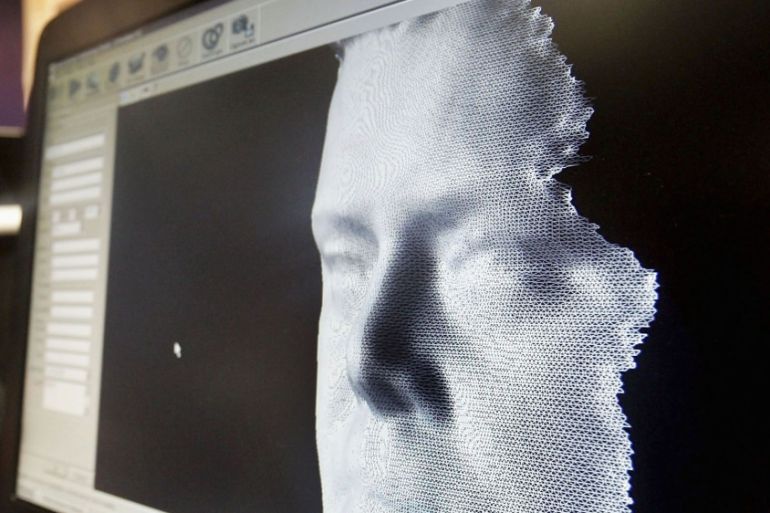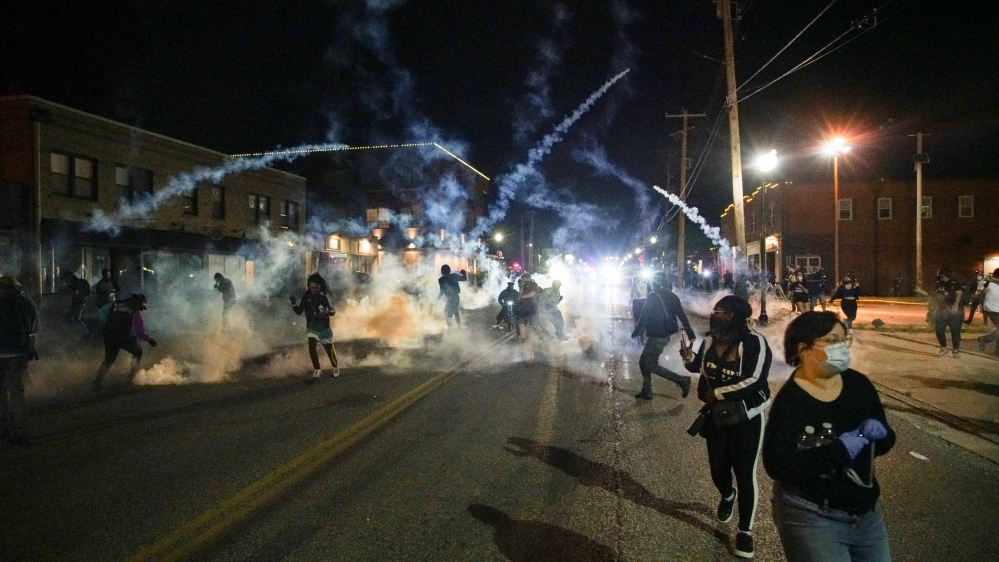Amazon pauses police use of its facial recognition software
Amid George Floyd protests, US tech giant Amazon issues a one-year pause on police use of its controversial software.

Amazon.com Inc said it is implementing a one-year moratorium on police use of its facial recognition software, a reversal of its longtime defence of law enforcement’s use of the technology.
The tech giant is the latest to step back from law-enforcement use of systems that have faced criticism for incorrectly identifying people with darker skin. The Seattle-based company did not say why it took action now.
Keep reading
list of 3 itemsAlphabet CEO backs temporary ban on facial-recognition technology
Microsoft removes face-recognition database from internet
The announcement on Wednesday came as activists have been voicing concern that facial recognition could lead to unjust arrests during demonstrations against police brutality, racial injustice and the death of George Floyd.
Critics have questioned the accuracy of the technology, pointing to Amazon’s “Rekognition” service that had struggled to identify the gender of individuals with darker skin in a past study. Amazon has taken issue with that research.

The company, which sells cloud computing technology via its Amazon Web Services division, said in a statement it has pushed for regulations to ensure the technology was used ethically.
“We hope this one-year moratorium might give Congress enough time to implement appropriate rules, and we stand ready to help if requested,” Amazon said.
Mass surveillance
Law enforcement agencies use facial recognition to identify suspects, but critics say it can be misused. A number of US cities have banned its use by police and other government agencies, led by San Francisco last year.
On Tuesday, IBM said it would get out of the facial recognition business, noting concerns about how the technology can be used for mass surveillance and racial profiling.
“Amazon’s decision is an important symbolic step, but this doesn’t really change the face recognition landscape in the United States since it’s not a major player,” said Clare Garvie, a researcher at Georgetown University’s Center on Privacy and Technology. Her public records research found only two US agencies using or testing Rekognition.
The Orlando police department tested it, but chose not to implement it, she said. The Washington County Sheriff’s Office in Oregon has been the most public about using Rekognition, but said after Amazon’s announcement Wednesday that it was suspending its use of facial recognition indefinitely.
Studies led by MIT researcher Joy Buolamwini found racial and gender disparities in facial recognition software. Those findings spurred Microsoft and IBM to improve their systems, but irked Amazon, which last year publicly attacked her research methods.
A group of artificial intelligence scholars, including a winner of computer science’s top prize, last year launched a spirited defence of her work and called on Amazon to stop selling its facial recognition software to police.
‘Need to step up’
A study last year by a US agency affirmed the concerns about the technology’s flaws. The National Institute of Standards and Technology tested leading facial recognition systems – though not from Amazon, which did not submit its algorithms – and found they often performed unevenly based on a person’s race, gender or age.
Buolamwini on Wednesday called Amazon’s announcement a “welcomed though unexpected announcement”.
“Microsoft also needs to take a stand,” she wrote in an emailed statement. “More importantly our lawmakers need to step up” to rein in harmful deployments of the technologies.
Microsoft has been vocal about the need to regulate facial recognition to prevent human rights abuses but hasn’t said it wouldn’t sell it to law enforcement. The company didn’t respond to a request for comment Wednesday.
Amazon began attracting attention from the American Civil Liberties Union and privacy advocates after it introduced Rekognition in 2016 and began pitching it to law enforcement. But experts such as Garvie say many US agencies rely on facial recognition technology built by companies that are not as well known, such as Tokyo-based NEC, Chicago-based Motorola Solutions, or the European companies Idemia, Gemalto and Cognitec.
The tech industry has fought against outright bans of facial recognition, but some companies have called for federal laws that could set guidelines for responsible use of the technology.
“It is becoming clear that the absence of consistent national rules will delay getting this valuable technology into the hands of law enforcement, slowing down investigations and making communities less safe,” said Daniel Castro, vice president of the industry-backed Information Technology and Innovation Foundation, which has advocated for facial recognition providers.
Angel Diaz, an attorney at New York University’s Brennan Center for Justice, said he welcomed Amazon’s moratorium but said it “should have come sooner given numerous studies showing that the technology is racially biased”.
“We agree that Congress needs to act, but local communities should also be empowered to voice their concerns and decide if and how they want this technology deployed at all,” he said.